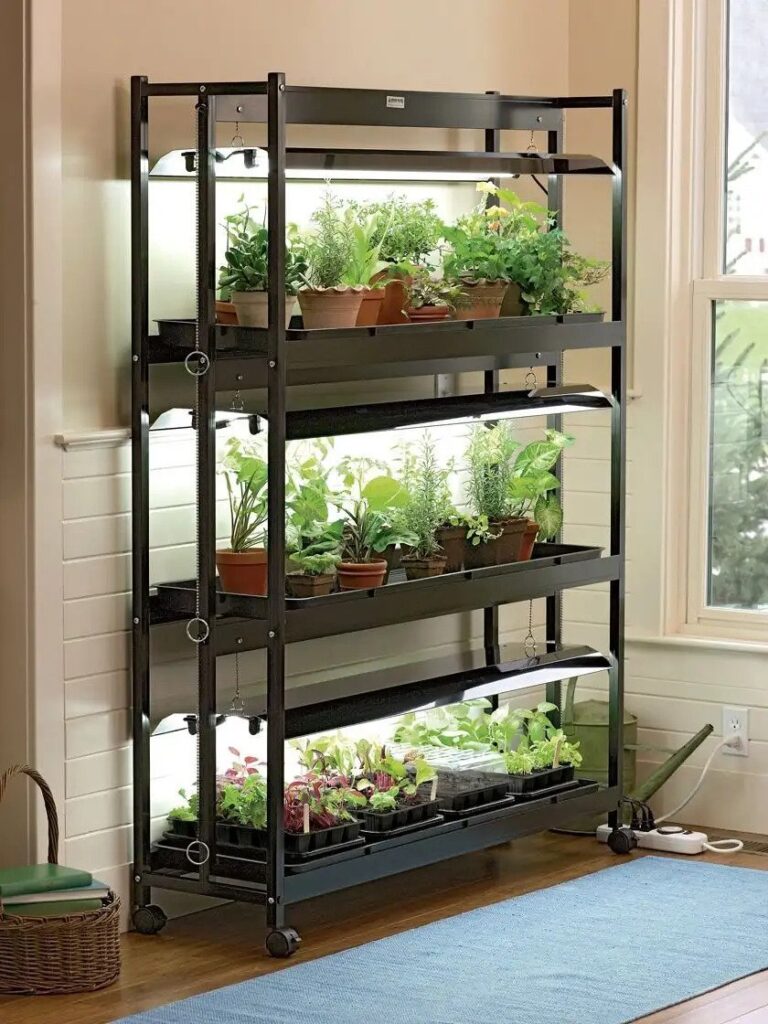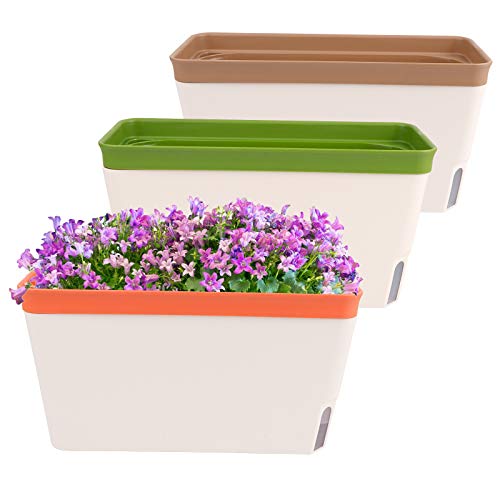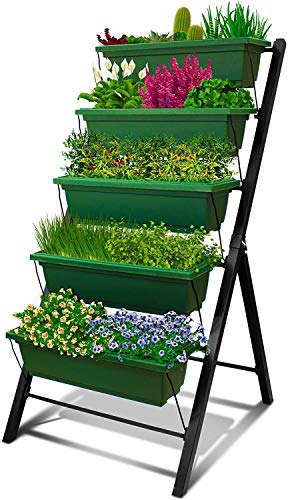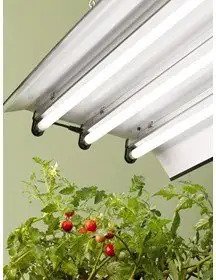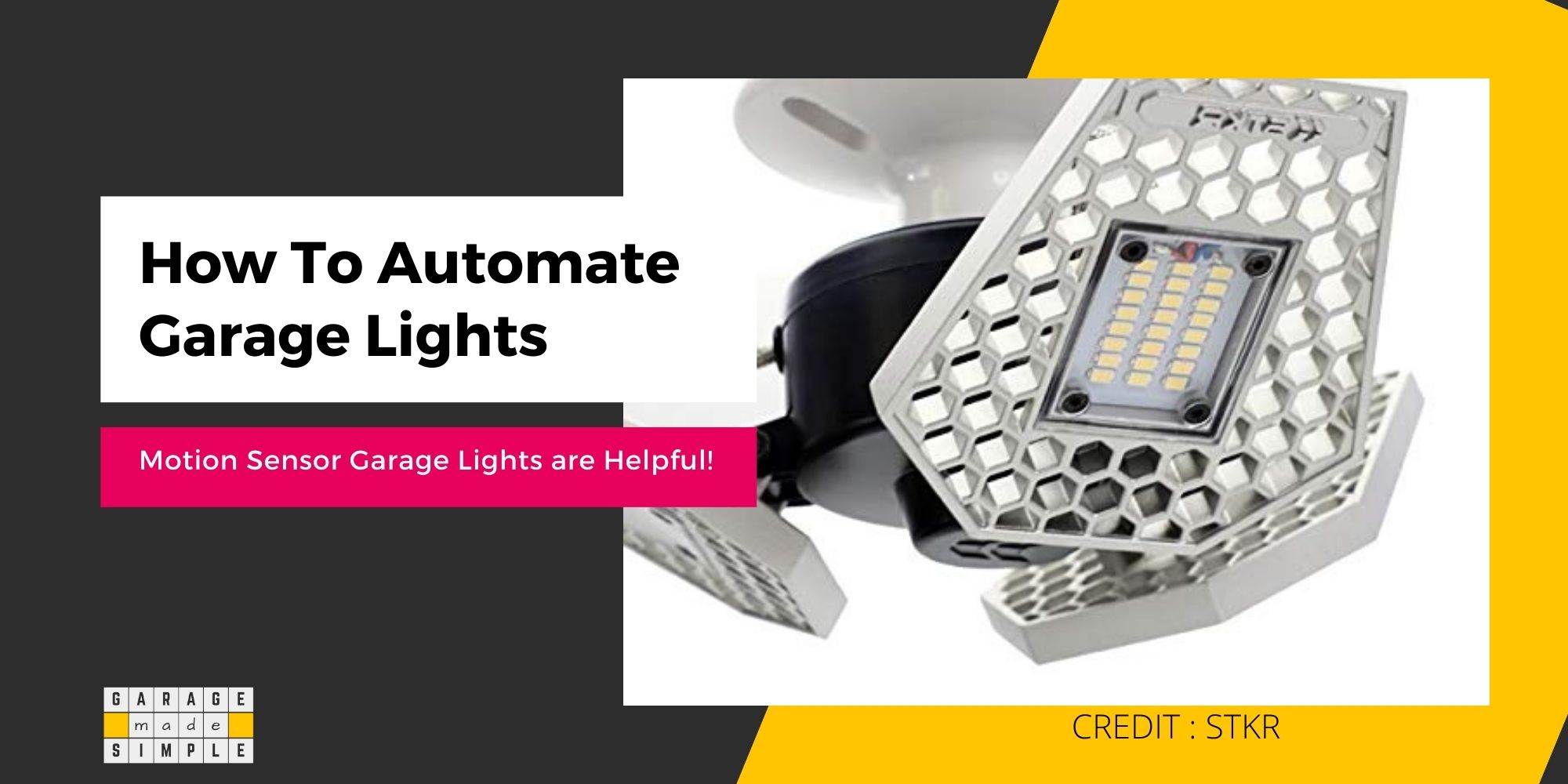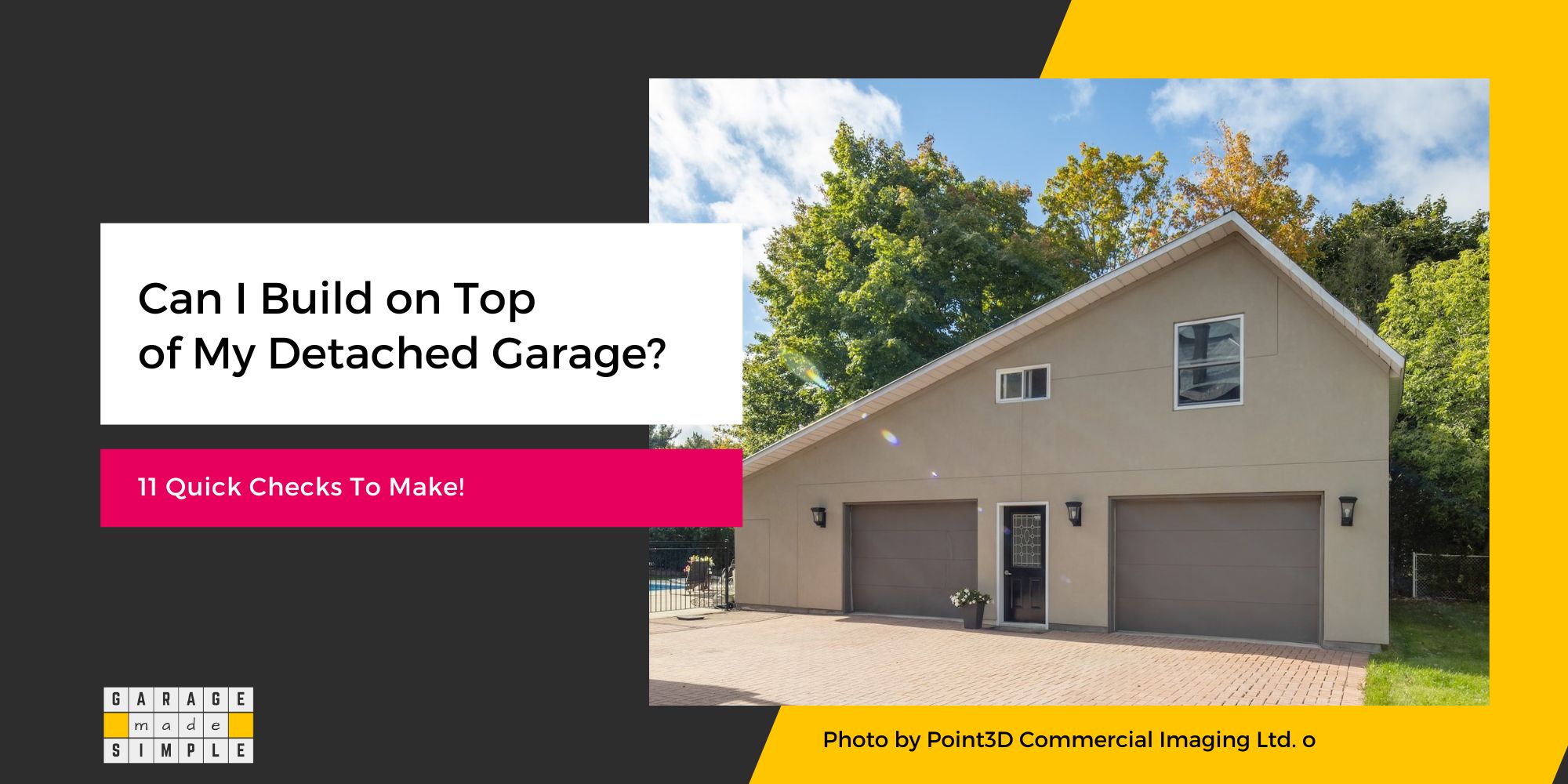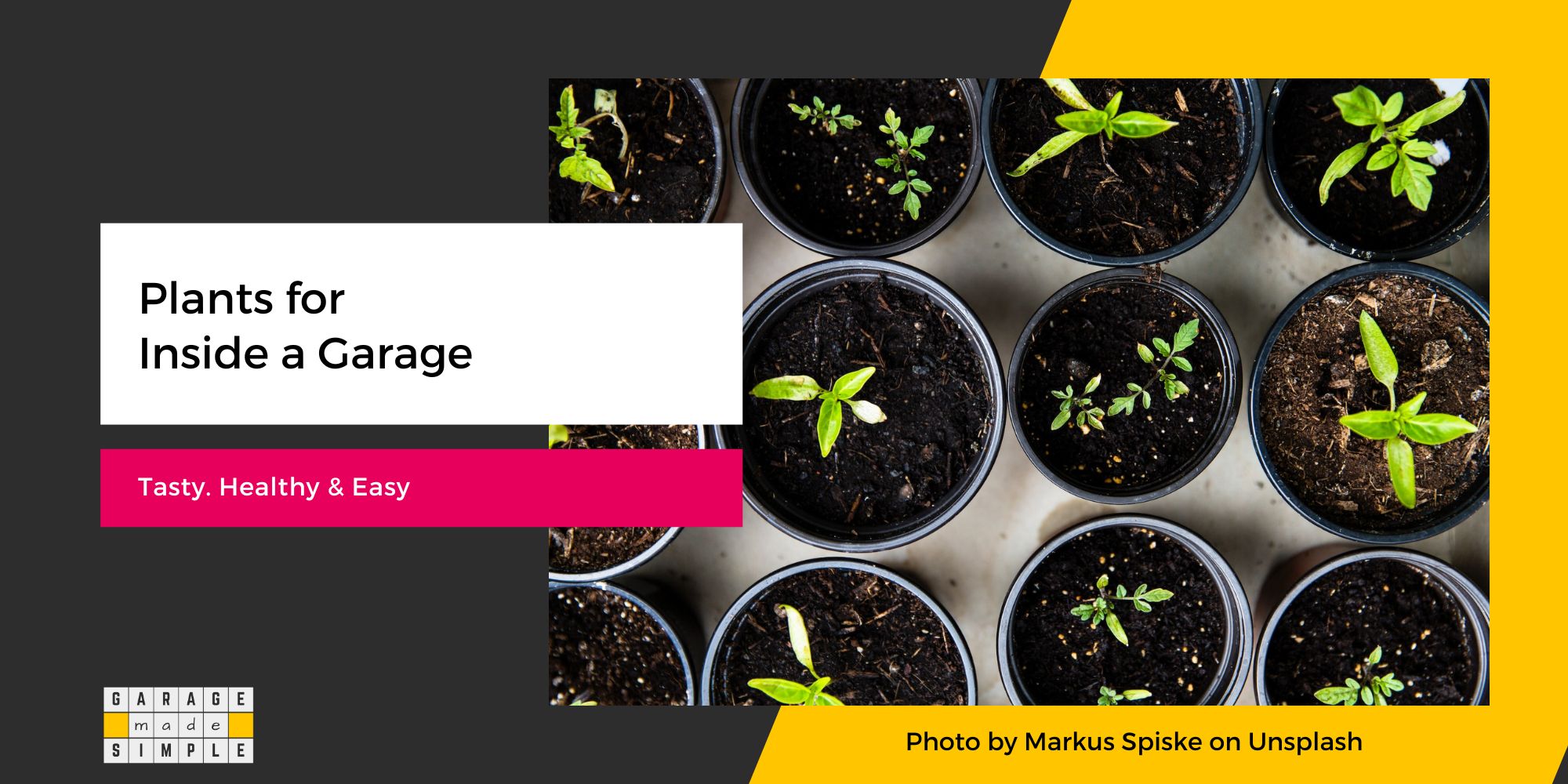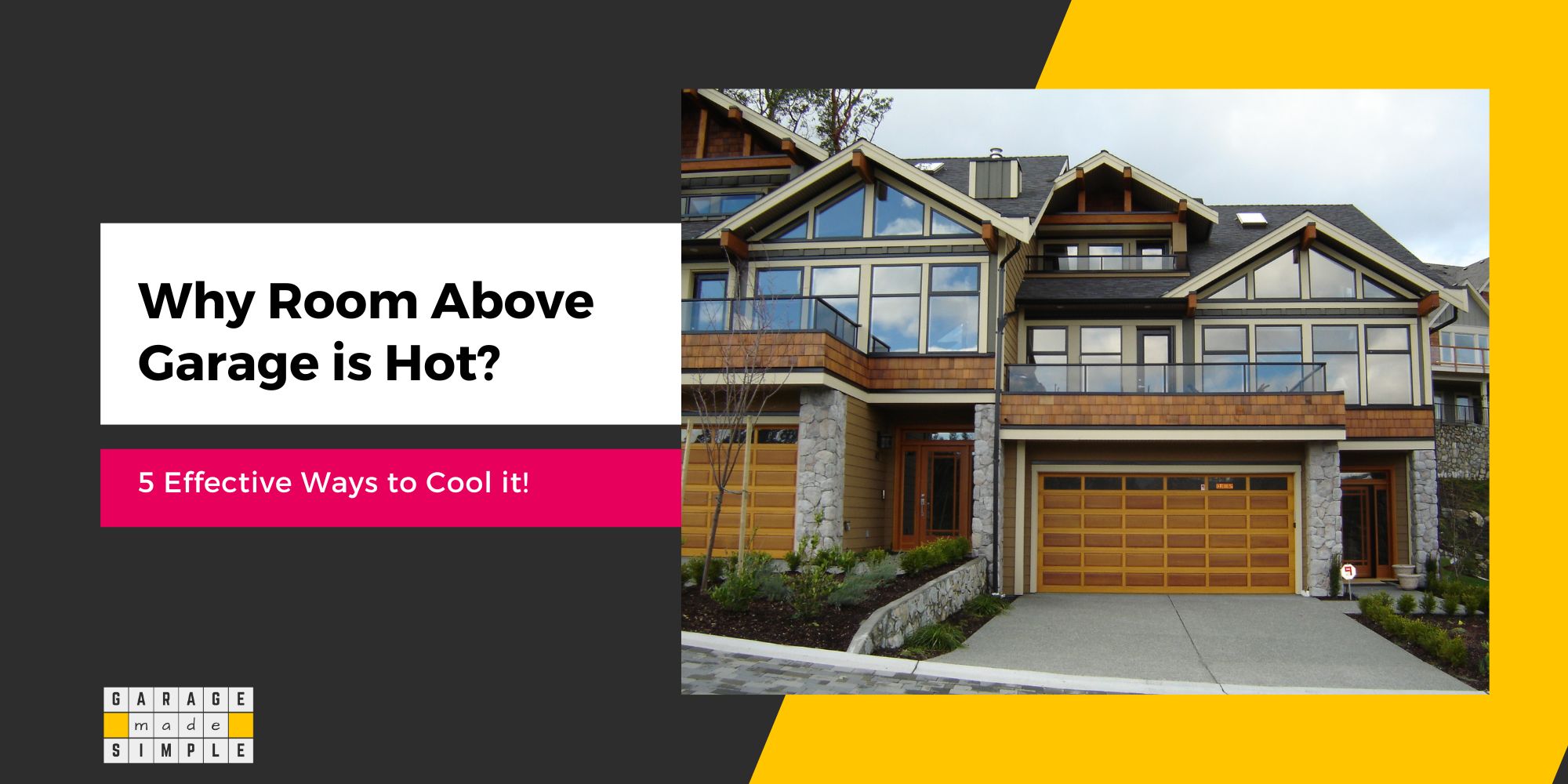How To Grow Vegetables In Your Garage? (Helpful Things To Know!)
garagemadesimple.com is a participant in the Amazon Services LLC Associates Program, an affiliate advertising program designed to provide a means for sites to earn advertising fees by advertising and linking to Amazon.com . The website is also an affiliate of a few other brands.
Grow Vegetables in the Garage? Yes you Can!
Do you love eating organic vegetables? Do you prefer to grow them yourself in your garden? So I am sure that you really hate winter when your little patch of kitchen garden is covered in snow. Did you know that you can actually grow vegetables in your garage? And herbs too!
Of course you love vegetable gardening. It is not just about eating organic, fresh & nutritious vegetables. Vegetable gardening is also about mindfulness and simple pleasures of living. For people who truly love gardening, running your hands through the soil or caressing the plants is pure bliss.
What is Required to Grow Vegetables in the Garage?
To be able to grow vegetables in your garage you must have the following essentials:
- Space – You need to allocate a space in the garage
- Planters – Plants need trays, pots or whatever to grow in
- Lighting – Remember plants need light energy for photosynthesis
- Water Irrigation – Of course! there is no life without water
- Temperature Control – Most plants can not handle extreme cold
- Air Circulation – Yes plants need to breathe, just like us
- Organic Pesticides – The bugs like veggies too so we got to keep them away
- TLC – Least of our worries. You would not be in this if you were not going to give tender loving care to your plants
So let’s get started. Let me help you and join you in your journey of growing vegetables in your garage.
Allocate the Space for your Garage Garden
Certainly you do not want your plants all over the garage space. Neither is it practical nor is it aesthetic. You have to decide how much space you are going to allocate to your project of growing vegetables in your garage.
This depends on what type of vegetables you will grow and how you will use them in your cooking. Of course your garage garden will not be able to meet the entire vegetable needs of your family. What you want are small quantities of organic, healthy & nutritious vegetables and herbs that can go into your salad or soup, once in a while.
A great advantage of growing vegetables in the garage is that you are not limited to a flat piece of land. Think vertical gardening!
Ideally your garage garden should be close to the door leading from the garage to the house. It would be most convenient.
Locating your garage garden next to the garage window (if you have one) has its own benefits. The plants can get some natural light during the day. And maybe some fresh air as well if the windows can be opened.
Let Your Garage Garden Go Vertical!
Once you have decided the space for growing the vegetables in the garage, you need to get the right shelves.
Vertical gardening is the way to go when you want to grow vegetables & herbs in your garage.
PHOTO CREDIT: GARDENER’S SUPPLY COMPANY
Using Slatwall is another great option! You can fix shelves on the slatwall or have the plants in their individual pot holders that can be attached to the slots in the slatwall. It can be a very neat & convenient arrangement and would look very classy too!
Which are the Best Planters for a Garage Garden?
Planters come in all shapes, sizes and materials.
Shape
I do not advise circular planters. They waste precious space!
Square or rectangular planters are best for maximum utilization of the limited shelf space that you have in your garage garden.
Size
Choose the size according to the shelf space available. Once again you want to maximize utilization of shelf space. So your planters, when kept side by side, should pretty much cover the entire shelf area.
However, do leave a slight gap between them for easier handling.
The height of the planter, totally depends on what you are going to grow in them. The larger the roots the deeper your planter should be.
For Herbs & Microgreens, shallow planters are perfect. Keep them on the middle or top shelf.
If you plan to grow carrots or radishes, get deeper planters. These are best kept on the bottom shelf as they will be heavier.
Material
In my opinion, the planters for growing vegetables and herbs in your garage should be functional, rather than decorative. So don’t waste your money on something fancy.
Plastic planters are light, unbreakable, long lasting and cheap. They are your best bet.
Click on the picture below if you like them to order on Amazon.
The one below is a complete set with its own stand as well! Click on the pic to order it from Amazon!
Else click on the link below to shop around on Amazon to find the one which meets your need.
Indoor Gardening Supplies at AmazonHow to Ensure the Plants have Enough Light?
If you have a large window in your garage and your vegetable garden is going to be next to it then your plants may get some sunlight during the day. But don’t bank on it. Cold winter days are notoriously gloomy!
Personally, I am not in favor of garage windows, particularly in cold climates. Lot of precious heat is lost. A garage window is also a magnet to prowlers and burglars!
So make arrangements for artificial lighting. Gardener’s Supply Company has a range of Grow Light Stand options. Their grow lights & SunLite® Gardens employ the latest in T5 fluorescent and LED grow light bulb technology.
They will keep your houseplants happy even during the grey days of winter. To find out more visit their Grow Lights & Stands page.
How do you Water your Garage Garden?
You may get away without water if you are growing succulents or building a rock garden. But to grow vegetables in your garage you will need to water them. All life forms depend on water, plants more so.
The soil in which the vegetable or the herb is growing needs to be kept moist at all times. Covering the soil with mulch helps reduce moisture loss by evaporation.
Be aware that there is also a risk of over-watering and making the soil soggy. This can make the roots rot. Fortunately, all good quality planters come with drainage holes and drip trays.
You do not need a complicated drip irrigation or any other water management system. Apart from the cost it would take away the charm of gardening. Simply water your vegetables using a single spout watering can.
A spray bottle is sometimes useful if you just need to mist the leaves.
You have to Ensure Temperature Control
Most vegetables & herbs will thrive at the same temperature as the one in which you are comfortable. That is temperatures between 70 and 72 degrees F.
This is really a great boon. If you and your family enjoy spending a lot of time in the garage, hopefully you would have a climate controlled garage already.
A climate controlled garage is also necessary for storing temperature sensitive sports or outdoor activity gear. Learn more about a climate controlled garage by reading my blog post How To Make Sure Of Best Climate Control For Your Garage.
Air Circulation is Equally Important for Plants
You can not grow vegetables or herbs in your garage, if your garage has poor ventilation. There has to be a continuous replacement of old air with new air. This is a necessary condition for optimum growth of plants.
Proper air circulation is required for water evaporation from the plant leaves. It also reduces excessive condensation on the plant leaves, thereby reducing growth of fungal infections and rot.
Weather permitting, you must try to keep the garage door open for a few hours a day. If you are worried about bugs & pests invading your garage space, use a garage door screen.
In any case your garage needs air circulation, especially in winter. The breeze from the ceiling fan or the exhaust fan will hasten the evaporation of water on the garage floor. Your garage floors will dry out faster.
Poor air circulation can lead to condensation and ice forming on the garage floor. This is hazardous. Learn more about this in my blog post How To Make Sure Its Dry? Garage Floor Water Diverter Is Helpful!
Only Use Organic Pesticides
Of course any plant, outdoors or indoors will harbor bugs & pests. After all they are food! So you have to use pesticides.
But you do not want to use harmful chemical pesticides. The whole idea is to grow organic vegetables & herbs in your garage. In fact use of toxic chemical pesticides in confined garage space is out right harmful to you and your family.
Neem oil, an extract from the neem tree is a potent natural and organic pesticide. On the other hand it is completely safe for humans. Actually neem has a lot of medicinal benefits and has been used in India for centuries.
Organic pest sprays, mainly citrus based are also an option. And believe it or not, introducing ladybugs in your garage garden will actually get rid of pests.
Show some TLC
Folks have been known to talk to their plants (even hum a melody to them). I am not sure if there is any evidence that this makes the plant happier and the tomatoes sweeter.
But I am willing to bet that it would make you happier.
Anyway, in addition to ensuring that the indoor vegetable plants & herbs are getting all they need in terms of light, water, nutrients, fresh air etc. the following will certainly help them grow healthier.
- Wipe the leaves with a damp cloth or spray a mist of water on them. Dust and dirt can build up on the leaves and prevent them from flourishing.
- Trim and remove dead or yellowing leaves and stems. This promotes new growth.
- Repot, if the roots or stems are too crowded. Plants need elbow room.
Which Vegetables should you Grow in your Garage?
A garage is a great place to grow seedlings and then transplant them into your garden when the season is warmer. But you can actually grow a lot of vegetables, herbs, leafy greens, etc. all the way to harvesting.
Vegetables (& Fruits & Fungi)
The vegetables that can be grown in a garage, relatively easily are:
- Carrots
- Radishes
- Scallions
- Tomatoes
- Bell Peppers
- Mushrooms
These generally require deeper planters, especially carrots & radishes
Leafy Greens
- Lettuce
- Kale
- Spinach
- Microgreens
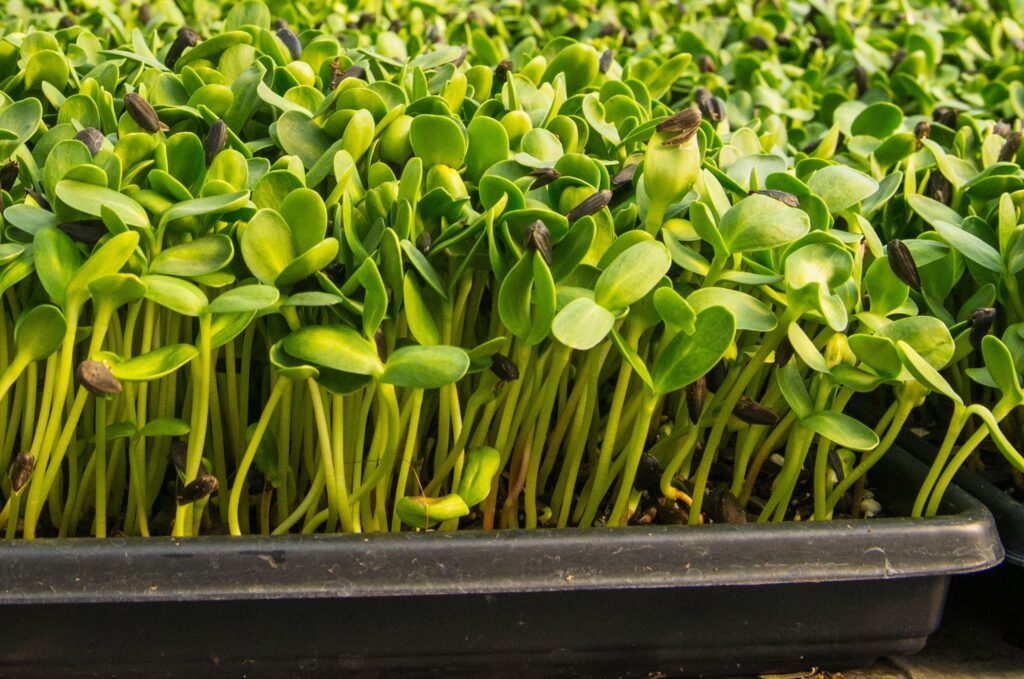
Herbs
Herbs require very little space. Fresh herbs, plucked just when you need them are a joy to the senses.
Many of the vegetables that can be grown indoors are super nutritious and will help you manage your weight.
Why not Try Some Innovative Gardening Techniques?
You can go beyond traditional indoor gardening and explore some of the more innovative gardening techniques.
Hydroponics
Hydroponics is the technique of growing vegetables in nutrient rich water rather than soil. There are many advantages of using this technique especially for indoor gardening.
Hydroponic gardening needs less space, a lot less water, no pesticides and harvesting is easy. However, initial setup costs are high and a certain degree of expertise is required to manage & monitor the system.
Aquaponics
This is a very cool idea. It combines the concept of hydroponics with aquaculture.
Aquaponics works like this. You start a fish farm by keeping them in a sort of aquarium and feed them regularly. The fish, naturally, poop after feeding. This will make the water toxic for the fish, if not cleaned.
But the fish poop is basically rich fertilizer and much needed nutrition for the plants.
So you make a hydroponic garden on top of the fish tank. The plants suck up the nutrients, grow and clean up the water for the fish.
Aquaponics is actually an exact copy of what nature has always been doing in ponds & lakes.
Succulents
Some people just love growing succulents. Succulents humidify & purify the air by absorbing toxins.
Succulents need very little care and can be used to beautify the garage. Put lots of them on a shelf and use the shelf as a garage divider. Cars on one side and living space on the other.
Admittedly, you can’t eat most succulents but they are great stress busters and mood enhancers.
However, if you do want to eat the succulents you grow in your garage, then you will have to grow the edible ones. Interested? Read this post 5 Edible Cacti and Succulents You Can Grow Indoors.
Bottom Line
The bottom line is that with a little effort & creativity you can grow vegetables in your garage. Winter can be pretty depressing, but an indoor vegetable garden in the garage can bring sunshine in your life.
Thank you very much for reading the post. I do hope you found it informative and useful.

